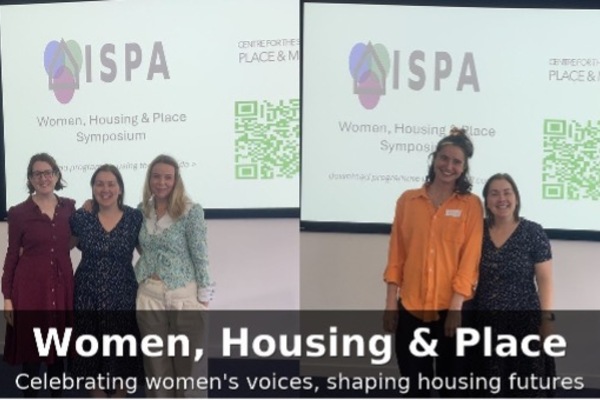Dr Yoric Irving-Clarke (Policy and Practice Research Officer, CIH) welcomes a shift towards evidence-based housing policy and outlines key findings from CIH’s recent research ‘Rethinking Social Housing’.
One of the main objectives CIH and HSA share is bringing the academic and practice worlds together. There has been an increasing focus on evidence-based policy over the past few years, particularly in the area of housing. The recent set up of the Centre for Collaborative Research (CaCHE) and Centre for Homelessness Impact respectively have provided a much needed shot in the evidence-based arm for the housing sector. In CIH’s policy and practice team we share these new centres’ aims to influence practice with an evidence base of robust research findings.
In a brand new piece of original research “Rethinking Social Housing” has delivered a wide ranging review of views and opinions about social housing. The project included:
- A review of existing research (in conjunction with CaCHE)
- An online survey for anyone to complete and a specific survey for people working in health and social care
- A toolkit to support tenants and housing workers to discuss the research questions and then send CIH their feedback
- Face to face interviews with 1,700 members of the public carried out by Ipsos MORI
- Interviews with people waiting for social housing
- A Twitter debate
- A ‘think tank’ event for tenants run by the Housing Plus Academy at Trafford Hall
The research showed that people largely think of social housing as being provided at below market rents and by not-for-profit landlords. Responses to all parts of the project told us there is widespread perception that social housing plays a key role beyond merely putting roofs over heads; whether this be through improving health and well-being outcomes, through providing quality, safe housing, building wider communities or providing much needed support to more vulnerable people.
“Social housing is there to provide a safe and secure foundation stone that brings family and community together. This supports local people who are striving for a better life.” Tenant workshop, London
It was also evident that many people thought that social housing should be available for all who want it, but that in the current situation it should be rationed according to need; whether this be financial or some other factor e.g. vulnerability, these two quotes sum up these views.
“Housing is a fundamental right, which should be provided by society to anyone regardless of their background or circumstances” Housing worker, London
“Social housing should be available to those with the greatest need; to provide an opportunity to support and stabilise those who are unable to access services without a stable home.” Anonymous
CIH were therefore very pleased to see so much of this kind of language reflected in the contents of the Green Paper, which also reflected several of the key themes within the Rethinking Social Housing report. The U-turns on the proposal to make councils sell their higher value assets to compensate housing associations for homes sold under the voluntary right to buy scheme and on mandatory fixed term tenancies for local authorities, and proposed measures to combat stigma are all particularly welcome. There were also areas where CIH would like greater clarity, for example, on the role and purpose of social housing; is it an ‘ambulance service’ housing intervention or intended to provide people with a long term home? Continued rhetoric around social housing being a “springboard” – helping people access ‘better’ housing options quickly – is at odds with a stated desire to reduce stigma around the tenure. It was also not clear that the government understands the impact of welfare reform on affordability and homelessness, and plans for boosting supply are nowhere near ambitious enough.
In responding to the Green Paper and in making a budget submission, CIH has a strong evidence base to call upon in speaking about the value of social housing and about the positive perceptions of social housing amongst tenants, the sector and the public. Between CIH, CaCHE, Centre for Homelessness Impact, Joseph Rowntree Foundation and other housing researchers and experts, there is a strong and growing evidence base about the key role of housing in shaping people’s lives and the value of being well housed.







